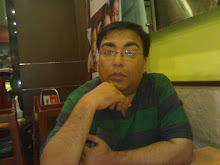VIP's with their peccadilloes are always tricky to handle and in a hospital the problem magnifies manifolds. If the VIP happens to be a politician, than he believes that he owns the hospital and everyone must be at his beck and call. This includes hospital staff, which is supposed to take care of the VIP at the exclusion of everybody else.
Ironically what escapes these VIP's is that in many ways a hospital is a great leveller. You might be the mightiest of the mighty, an illness treats you exactly the same as anybody else. It does not differentiate amongst its victims. When a doctor examines a VIP he does it the same as (I would presume) anyone else. The medicines work the same way, the course of the disease is not impacted by the office that the VIP holds. Thus logically a spell in the hospital must be a lesson in humility to the mighty ones. Alas, this happens but rarely.
Many years ago, while I was working at Max Hospital, we had a minister hospitalised with us. The minister needed an angioplasty, which was duly performed by Dr. Ashok Seth, the resident high priest of Cardiology. The minister was soon on his way to recovery. However, all through his stay the hospital had to endure scores of people, his so called well wishers, breaking every conceivable hospital rule. While the minister recuperated, he and his cronies had virtually a free run of the hospital, largely at the expense of other patients. To make matters worse, the minister, decided not to pay and asked that the hospital collect its dues from a PSU, which came under the ministry he was heading then. It took the hospital more than a year to recover its money.
Another former chief minister who suffers from a delicate problem, has a fetish of never undressing in front of a female person. Thus for him the hospital has to ensure an all male staff, including the nurses, orderlies, doctors et al.
Business tycoons too have their peccadilloes. One family insisted on occupying a suite, which is fair enough. However, when they were informed that no suite was available, they still insisted on being accommodated in a suite. They ran circles around the hospital administrators, pressurising everyone to organise a suite, fully realising that this can only be done by asking someone else to vacate their suite. The hapless hospital managed to offer them two adjoining rooms, which they grudgingly took but never stopped cribbing about it.
I have never understood, what is it with people vested with power or money (or both), which makes them think only of their creature comforts, even in a hospital. What makes them believe that because of their position in society, they automatically have a right to jump a queue and that too in a hospital, where suffering and emergent need must always be the rightful criteria for getting ahead in the queue.
As far as hospitals are concerned, they quite often are a willing accomplice in this charade. They go out of their way to keep the power that be happy. While I can understand a policy of least confrontation and bending backwards to accommodate a VIP, to do so at the expense or discomfort a more deserving individual is just plain wrong.

